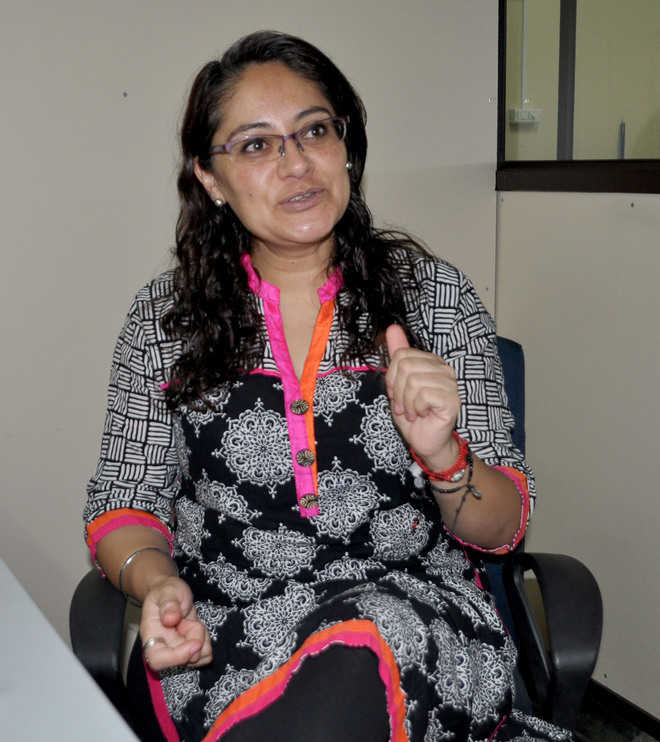Divya Sharma
Tribune News Service
Amritsar, June 11
Clad in an Indian attire, Fernanda Vazqufz of Mexico can be mistaken for an Indian for her local resemblance.
A professor and researcher atMetropolitan Autonomous University, Mexico City, she is back in the city after a gap of 10 years to continue with her study on the impact of 1984 Operation Bluestar and riots on Sikh women who lost their husbands during the militancy era. Now, she shall be focusing on the impact on the younger generation of such families and their lives.
She says most of the widows feel that there voices have not been heard. Any kind of violence shall result in more violence. “I met a number of Sikh women, who lost their husbands during the Operation Bluestar and anti-Sikh riots. Most of them felt that they were left on their own and no support was provided to them by the government. Besides, they also feel that there grievances and voices have gone unheard,” she says.
Her study also includes changes in their lives as the socio-economic scenario of Punjab.
With this study, Vazqufz aims at give voice to the fairer gender. The study also points out the changed perception of the sufferers towards the government.
Her study covers Sikhs, particularly widows, residing in Delhi, Amritsar and nearby areas. Talking about her journey from Mexico to Punjab, Vazqufz says, “I was reading about a conflict in Kashmir in one of our dailies. I researched more about Indian conflicts. I chose the era post Punjab militancy, anti-Sikh riots and aftermath as I could relate to an incident back home wherein the Mexican Army took action against locals in 1960s. The desire to known more has brought me here. I have covered Sikh widows here in Amritsar and Delhi for 1984 Operation Bluestar and anti-Sikh riots, respectively.”
Vazqufz, who teaches contemporary Indian history back home, is now focused on the changes in lives of these women and hope, aspirations of the younger generation of such families. “A lot has changed over the years. There lives have moved forward. I shall be focusing on the same this time,” she adds.
Unlock Exclusive Insights with The Tribune Premium
Take your experience further with Premium access.
Thought-provoking Opinions, Expert Analysis, In-depth Insights and other Member Only Benefits
Already a Member? Sign In Now











